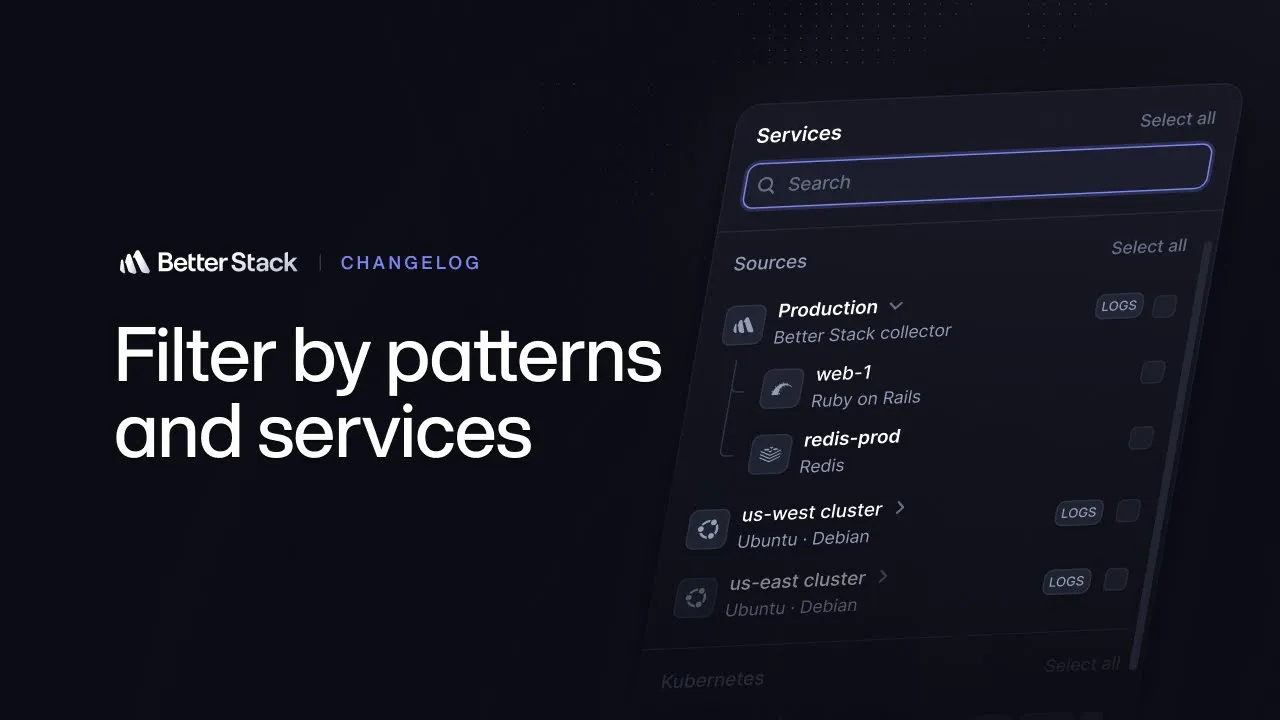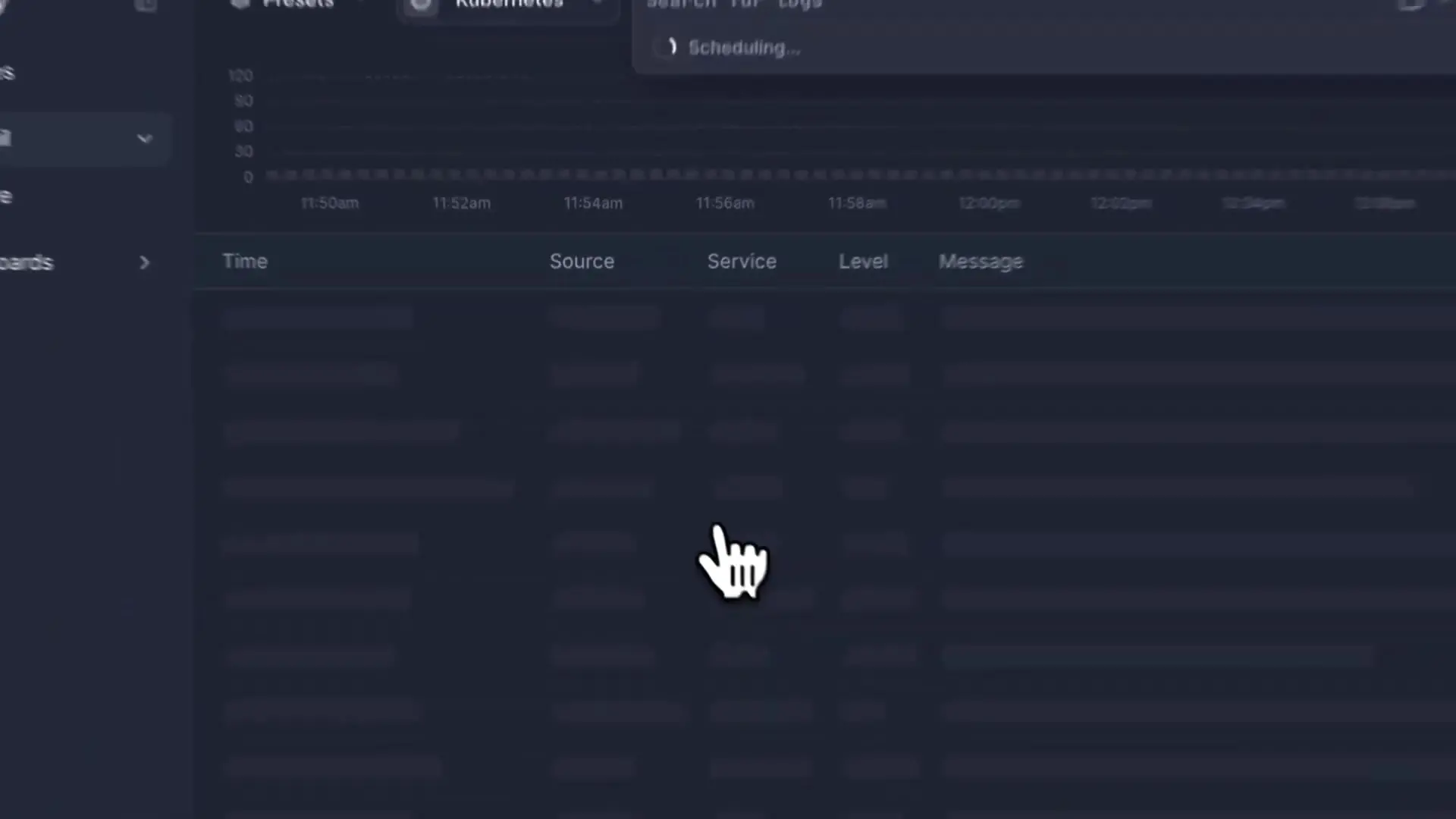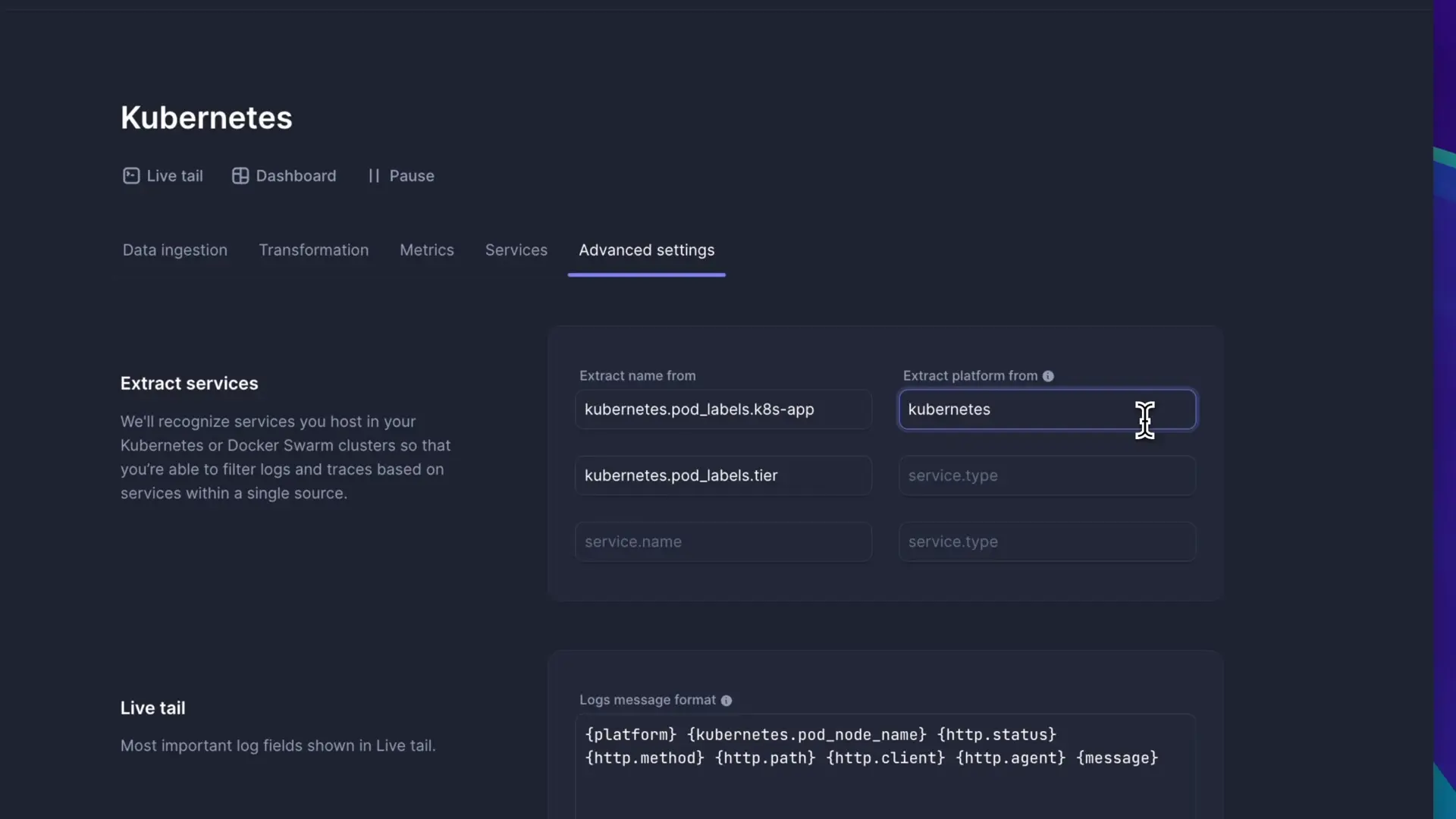
In today's fast-paced development environment, efficiently analyzing logs is crucial for maintaining high-quality software. Better Stack has recently introduced significant improvements to their observability platform that can dramatically enhance how developers filter and analyze logs, especially when working with Azure DevOps environments.

Pattern-Based Filtering: Finding Specific Log Patterns in Azure DevOps
When troubleshooting issues in Azure DevOps, being able to filter by keyword is essential. The new pattern-based filtering feature allows developers to quickly isolate specific error patterns or similar message styles. This capability is particularly useful when you need to filter Azure DevOps logs during build validation processes or when analyzing deployment failures.
With pattern-based filtering, you can now:
- Filter by keyword in Azure DevOps to locate specific error messages
- Identify recurring patterns across multiple log entries
- Exclude irrelevant logs that match certain patterns to reduce noise
- Focus on critical issues by filtering out routine messages
Service Discovery: Slicing Logs by Individual Services
One of the most powerful new features is the ability to slice logs by individual services. When you're working with a cluster or server that hosts multiple services, logs can quickly become overwhelming. Using path filter in DevOps environments, you can now isolate logs from specific services rather than viewing them all mixed together.

This feature is particularly valuable when you need to filter by date in Azure DevOps to investigate issues that occurred during specific timeframes across different services. By combining date filtering with service isolation, you can quickly narrow down the exact logs needed for your analysis.
Configuring Service Discovery in Your Observability Stack
Setting up service discovery is straightforward and gives you complete control over how your services are identified. Here's how to configure it:
- Navigate to the source configuration in your observability dashboard
- Access the advanced settings section
- Select any field in your logs that identifies different services
- The system will automatically create a service for each unique value in that field

Implementing Path Filters for Build Validation in Azure DevOps
When working with complex build pipelines in Azure DevOps, path filter build validation becomes essential. This allows you to focus on logs generated from specific components or code paths that are under active development or testing.
To implement path filtering for build validation:
# Azure DevOps pipeline example with path filters
trigger:
branches:
include:
- main
- feature/*
paths:
include:
- src/services/critical-service/*
- infrastructure/kubernetes/*
exclude:
- docs/*
- README.mdThis configuration ensures your pipeline only triggers when relevant code paths are modified, making your build validation process more efficient and focused.
Advanced Filtering Techniques for DevOps Teams
Beyond the basic filtering capabilities, there are several advanced techniques that DevOps teams can leverage:
- Filter by priority in DevOps to focus on critical issues first
- Combine filter by keyword Azure DevOps with date ranges to isolate specific incidents
- Use filter by created by in Azure DevOps to track changes made by specific team members
- Create dashboard views with pre-configured filters for common troubleshooting scenarios
- Set up alerts based on pattern matches to proactively identify recurring issues
Integration with Dashboards for Enhanced Visibility
The new filtering capabilities aren't limited to the log viewer—they also work seamlessly with dashboards. This integration allows you to create customized views that present filtered log data alongside other metrics and visualizations.
For teams using Azure DevOps, this means you can create comprehensive dashboards that combine:
- Build status information filtered by specific paths
- Deployment metrics with logs filtered by relevant services
- Error trends identified through pattern-based filtering
- Performance metrics correlated with filtered log data
Conclusion: Streamlining Your DevOps Workflow with Advanced Filtering
The introduction of pattern-based filtering and service discovery represents a significant advancement for teams working with complex logging environments, particularly those using Azure DevOps. By leveraging these capabilities, you can dramatically reduce the time spent searching through logs and focus more on solving actual problems.
Whether you need to filter by keyword in Azure DevOps, implement path filter for build validation, or filter by date to investigate specific incidents, these new features provide the flexibility and power needed to make your observability stack truly effective. As development environments continue to grow in complexity, having these advanced filtering capabilities becomes not just convenient but essential for maintaining high-quality software delivery.
Let's Watch!
7 Advanced Filtering Techniques in Azure DevOps for Faster Log Analysis
Ready to enhance your neural network?
Access our quantum knowledge cores and upgrade your programming abilities.
Initialize Training Sequence